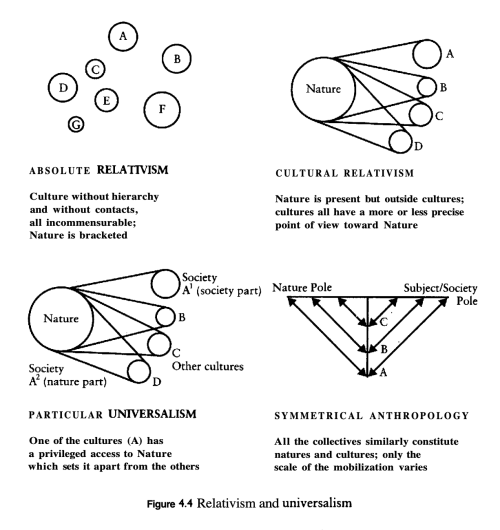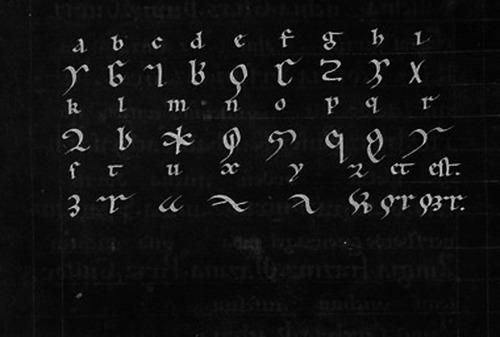Latest Posts by sigilheart - Page 3

journal entry - june 5 2024

Jack R. Strange, "A Search for the Sources of the Stream of Consciousness", The Stream of Consciousness: Scientific Investigations into the Flow of Human Experience

A computer representation of Jupiter’s atmosphere, sourced from NASA’s 1978 Aeronautics and Space Report.
The basic tenets of alchemy:
1. The universe has a divine origin. The cosmos is an emanation of One God. Therefore All is One.
2. Everything in the physical world exists by virtue of the Law of Polarity or Duality. Any idea can be defined in relation to its opposite, such as: male-female, light-dark, sun-moon, spirit-body, and so on.
3. Everything in the physical world is composed of Spirit, Soul, and Body: the Three Alchemic Principles. (In alchemy, these are called Mercury, Sulfur, and Salt.)
4. All alchemical work, whether practical laboratory work or spiritual alchemy, consists of three basic evolutionary processes: separation, purification, and recombination.
5. All matter is composed of four archetypal energies—the four elements of Fire (thermal energy), Water (liquid), Air (gas), and Earth (solid). The knowledge and skillful use of these four energy types is an essential part of alchemical work.
6. The Quintessence, or “Fifth essence,” is contained within the four elements but is not one of them. It is one of the three essential Principles, also called the Philosophic Mercury.
7. Everything moves toward its preordained state of perfection.
Israel Regardie, The Philosopher’s Stone: Spiritual Alchemy, Psychology, and Ritual Magic

A stone marker at a holy site dedicated to the dual lunar cult of Tanit and Astarte; Phoenician night goddesses worshipped from the Bronze Age through classical antiquity, alongside their horned consort Ba'al Hammon, “Lord of Braziers”, classically associated with Saturn.

Eugene Thacker, After Life

The Qabalah describes the universe as divided into four separate “Worlds”. The first is Atziluth, the Archetypal World, the world of Pure Spirit which activates all of the other worlds which evolve from it. The second world is Briah, the Creative World, the level of pure intellect. The third is Yetzirah, called the Formative World because here are found the subtle and fleeting patterns behind matter. The final World is Assiah, the active world containing both the physical world of sensation and the unseen energies of matter.
Robert Wang, The Qabalistic Tarot: A Textbook of Mystical Philosophy

Goddess Archetypes
Jennifer and Roger Woolger, The Goddess Within: A Guide to the Eternal Myths that Shape Women’s Lives

When we sleep our astral body separates from the etheric body, only connected with the silver cord. When we wake again the two bodies connects again and in that short time before they are joined fully, the dreams are transferred from the astral body to volatile memory in the etherbody.
When the two bodies are rightly joined we have no spiritual access to the astral world, but for some people the two bodies don’t join fully, there is a rift between them which can be used by natural clairvoyants or there can be created a rift through drugs or other means.
Love – Initiation – The Dark Night of the Soul

The ‘Cognitive Science Hexagon’ redrawn from the original cover of the Sloan Foundation’s 1978 State of the Art Report on Cognitive Science

A transpersonal psyche with a collective unconscious composed of the sum of all of the archetypes as Jung’s model proposed would have features of a scale-free network structure. His methodology for approaching the unconscious, especially amplification, similarly can be seen to map and understand the psyche as such a network.
—Joseph Cambray, Synchronicity: Nature & Psyche in an Interconnected Universe

Torus Configurations
Human consciousness is characterized by awareness, volition and cognitive reflection, operating within a neural workspace…Within this workspace, a bicyclic flow of information was envisioned…Both types of information flow provide the basis for integration of active information that returns to itself (a modality of self-consciousness), including modalities of universal consciousness.
Toroidal information flux is postulated by us to provide the basis for the existence of consciousness at the different scales of the Universe. There are distinct reasons to choose the multidimensional symmetrical aspects of the double vortex torus, a geometry that may mimic a combination of transversal, longitudinal and circular waves.
—Dirk Meijer & Hans Geesink, Consciousness in the Universe is Scale Invariant and Implies an Event Horizon of the Human Brain

Major Arcana Tarot Card Meanings
The Major Arcana cards include 21 numbered cards and one unnumbered card (the Fool). The Fool is the main character of the Major Arcana and makes his journey through each of the cards, meeting new teachers and learning new life lessons along the way, and eventually reaching the completion of his journey with the World card. This is known as the Fool’s Journey.
When you see a Major Arcana card in a Tarot reading, you are being called to reflect on the life lessons and themes that are currently being experienced at this time. A Major Arcana card will often set the scene for the entire Tarot reading, with the other cards relating back to that core Major Arcana meaning.

The very notion of culture is an artifact created by bracketing Nature off. Cultures — different or universal — do not exist, any more than Nature does. There are only natures-cultures, and these offer the only possible basis for comparison. As soon as we take practices of mediation as well as practices of purification into account, we discover that the moderns do not separate humans from nonhumans any more than the totally superimpose signs and things.
[…] Absolute relativism presupposes cultures that are separate and incommensurable and cannot be ordered in any hierarchy; there is no use talking about it, since it brackets off Nature. As for cultural relativism, which is more subtle, Nature comes into play, but in order to exist it does not presuppose any scientific work, any society, any construction, any mobilization, any network.
—Bruno Latour, We Have Never Been Modern


Hegel’s Dialectics
Dialectics drives to the “Absolute”,… which is the last, final, and completely all-encompassing or unconditioned concept or form in the relevant subject matter under discussion (logic, phenomenology, ethics/politics and so on). The “Absolute” concept or form is unconditioned because its definition or determination contains all the other concepts or forms that were developed earlier in the dialectical process for that subject matter…We can picture the Absolute Idea, for instance—which is the “Absolute” for logic—as an oval that is filled up with and surrounds numerous, embedded rings of smaller ovals and circles, which represent all of the earlier and less universal determinations from the logical development. [Fig. 1].
Since the “Absolute” concepts for each subject matter lead into one another, when they are taken together, they constitute Hegel’s entire philosophical system, which, as Hegel says, “presents itself therefore as a circle of circles”. We can picture the entire system like this [Fig. 2].

Hildegard von Bingen’s 23 litterae ignotae, letters for her constructed mystical language Lingua Ignota, ca. 1200.

Roberto Assagioli’s Consciousness Egg
The Self is a transpersonal center, a source of essential being, an inner counsellor guiding us to truth, meaning, and purpose. The Self is represented as a star, and appears at the top and bottom at the top of the diagram.

A table of Chimical Characters in Le Fèvre’s 1670 edition of A Compleat Body of Chymistry.

















